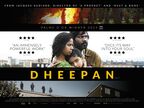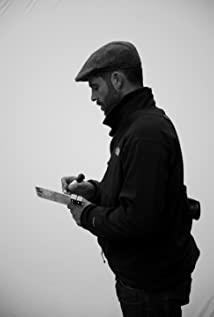At this year's Cannes Film Festival, French director Jacques Audiard won the Palme d'Or for Best Picture for his film "The Wandering Dupin," putting Hou Hsiao-hsien, who had previously been highly vocal, in second place. This result, although the Chinese-language media are worried, is also reasonable. The five French films in this year's main competition unit have been accused of generally low quality, and have been criticized by various film critics from the beginning of the festival. "The Wandering Dipin" debuted at the end of the film festival, and it came in a hurry. It won the gold quickly without waiting for people to think about it. Although it is quite dramatic, but when you think about it, the film's solid script, tense shootouts, plus Realistic themes full of social care, and every link is intricate, representing the level of the mature French film industry, both artistic and commercial, it is the safest choice to award the award to him. What's more, the film festival where the new chairman takes office always consciously or unintentionally supports French directors who are fighting at home. The Coen brothers, who are the chairman of this year's jury, are also fans of crime movies. "Dipin the Wandering" occupies the right place at the right time and place. people and.
Born in a film family, Jacques Audiard has become the most successful genre director in France in recent years. Before "The Wandering Dupin", he had already been shortlisted three times for the Palme d'Or in Cannes on his splendid resume. In 2006, "The Rhythm My Heart Forgotten", about the real estate gangster influenced by music, won eight Caesar Awards in a row and became the biggest winner of the year. In the creation of the film, Odia shows the ambition to point directly to the political and social realities of France from time to time, and wraps it under the shell of the crime film, while offering exciting genre fragments, while through the daily life. Create, remind the audience that those seemingly distant disturbing factors are actually close at hand. In 2009, its "The Prophet" about the entanglement of French gangsters is an example. When it came to "The Wandering Dipan", he boldly abandoned the echelon of French star actors and used three Sri Lankan actors who had no experience in film performances. In a pure Tamil film, he outlined a life war in the suburbs of Paris.
Whether it's a confined space or an open area, Jacques Audiard is very good at creating tension in his films. At the beginning of "The Wandering Dipan", the raging flames of the Tamil Tigers in the Sri Lankan civil war brought the cruelty of life and death to the screen at once. After that, when a woman named Yarini and Dupin, who had never met before, waited for the boat in the wind, the story slowly showed a trace of vitality from the suffocation of PUBG. In order to take refuge in the ocean, Yarini and Dupin obtained passports in disguise as a couple, and an orphan named Eliya joined their temporary family. The change of space has injected a different temperament into the film. "The Wandering Dupin" is like a well-made documentary. It follows the three refugees step by step, filming their struggle and helplessness trying to integrate into the mainstream French society. When the war was over, the flickering lights in the darkness approached the audience, and a sense of unease enveloped the whole body. This faint light is actually just the flashing headgear that Dipan sells. They are like a faint light of hope, which contains all kinds of sadness, but supports Dipan's humble life. At the same time, the film has not forgotten to tackle a more complex subject: emotional development among refugees. Here, Jacques Audiard combines the filming methods of social dramas and romantic dramas, exploring the precarious work and survival of immigrants on the one hand, and exploring the long identification and running-in between temporary family members on the other hand. Although the living conditions are poor, the compassion of the fallen people from the end of the world dissolves the confrontation between individuals, and the humorous highlights that appear from time to time also make the story gradually have a warmer undertone.
Films always pay attention to the hardships of refugees as they integrate into mainstream society, which is a popular theme in French films. From "Unreachable" to "Samba", the racial and religious conflicts are becoming increasingly acute. This issue undoubtedly highlights the French film industry. realistic concerns. With the growing crisis of political refugees in Europe, "Dipin the Wandering" shows its political ambition to intervene in reality.
As a political refugee who came to Europe through hardships, Dupin could not escape the memory of the past. At that time, as a guerrilla, he was like a fragile animal in the tropical rain forest, and he could only hide his huge body helplessly after the leaves. Odia's intention to use the word "elephant" twice clearly shows this. However, France is not a paradise for living and working in peace and contentment. Dupin, who escaped the war, just came from one jungle to another. In the suburban low-rent housing where gangs are crowded, fighting and confrontation are still the main theme of life. Jacques Audiard, known for his handling of violence, lays a disturbing undertone at the beginning of the story. This flickering guide points to an explosion of narrative, lost and helpless immigrants who will eventually become victims of a chaotic society. There is not much difference here and there.
Like "The Prophet", the black violence of "The Wandering Dipan" is only one step away from daily life. In order to make money to subsidize the family, Yarini works as a caregiver in a gangster in the community, and is friendly with her on weekdays. The gangsters, in the next second, it is possible to rush out of the door with a submachine gun and fight on the street. The film is careful to keep the narrative rhythm tepid, creating a paternalistic atmosphere, with Odia slowly accumulating emotions until the final burst of despair. Through "The Wandering Dipin", Jacques Audiard completed a double critique of the political conflict in Sri Lanka and the economic turmoil in Europe. He did not try to save the people of the third world with a lofty attitude, but sympathetically designed violence for them The only way out for resistance. The film contains a detailed depiction of the war, but also highlights the bleak conditions of the French slum neighborhoods. If the subtle emotions cultivated between refugees in the film, or even between refugees and gangsters, give people short-lived hope, then the sharp turnaround in the second half of the film expresses the director's despair. However, here, Odia shows its own shortcomings, or in other words, in the handling of realistic themes, the seemingly beautiful genre films are stretched, and even push the original strong social demands of the film to nothingness-maybe For the consideration of commercial distribution, Jacques Audiard designed a happy ending for the movie, which is also considered to be the only failure of the movie. This soothing sugar-coated cannonball not only weakened the ruthlessness of the movie's black violence. It also reduces the intensity of criticism throughout the article. In addition, a leak-proof script is rare, and the truly touching performances of amateur actors add a lot of brilliance to the film.
"21st Century Business Herald"
View more about Dheepan reviews











